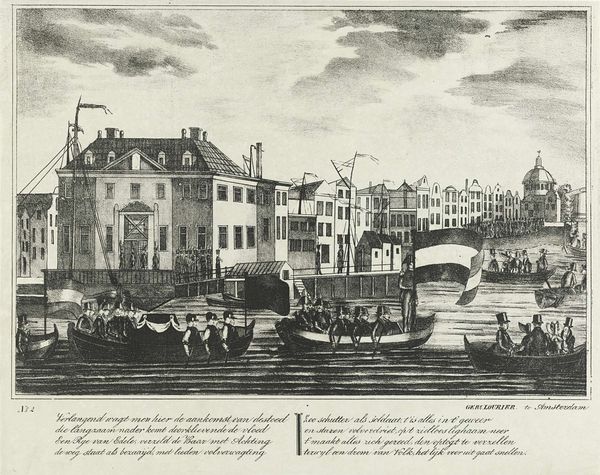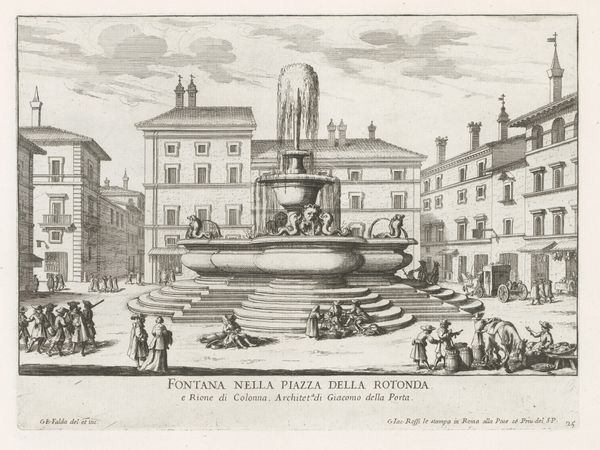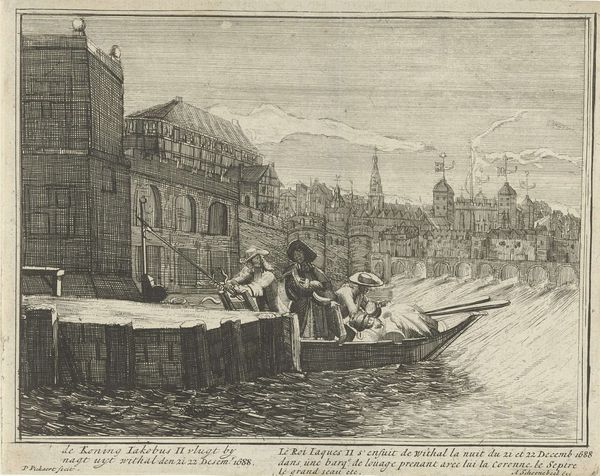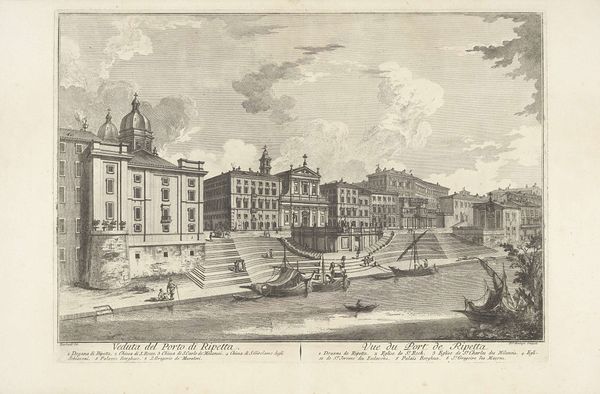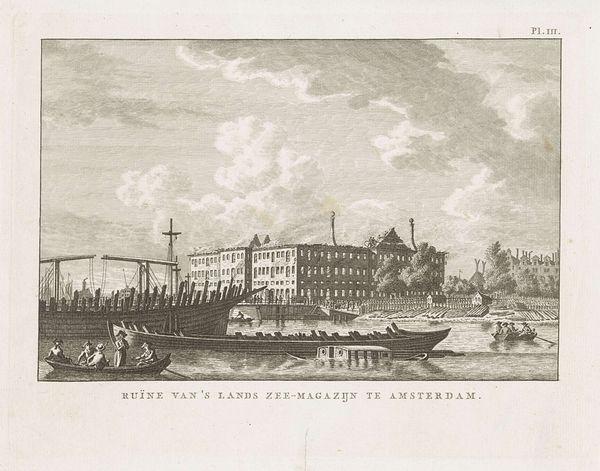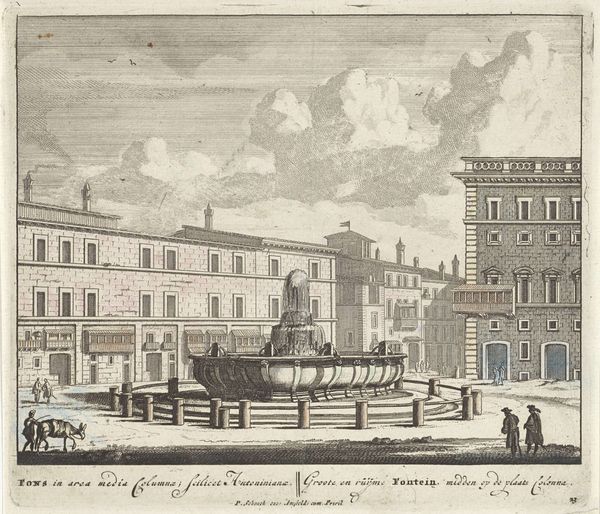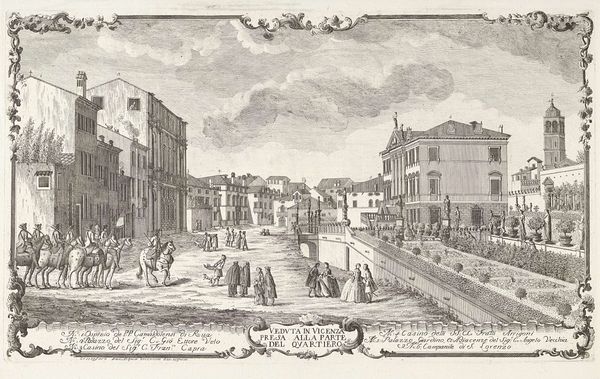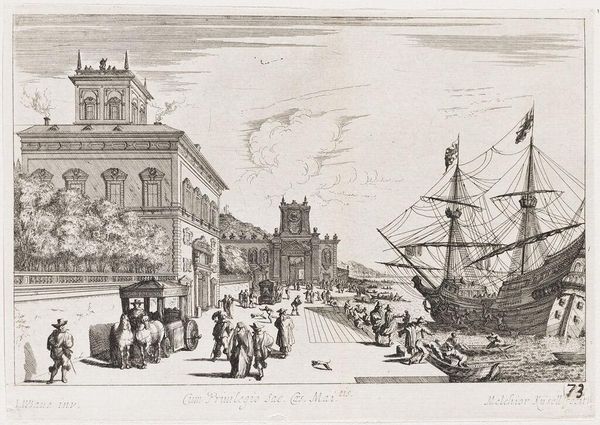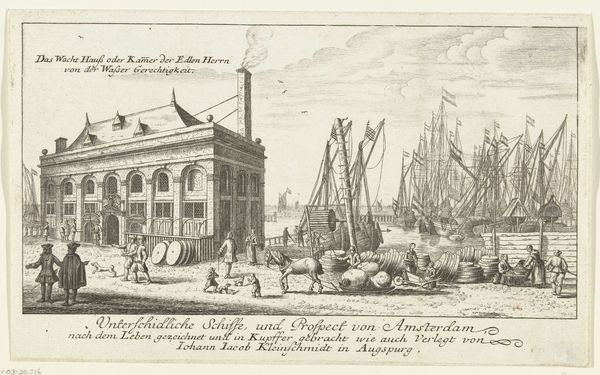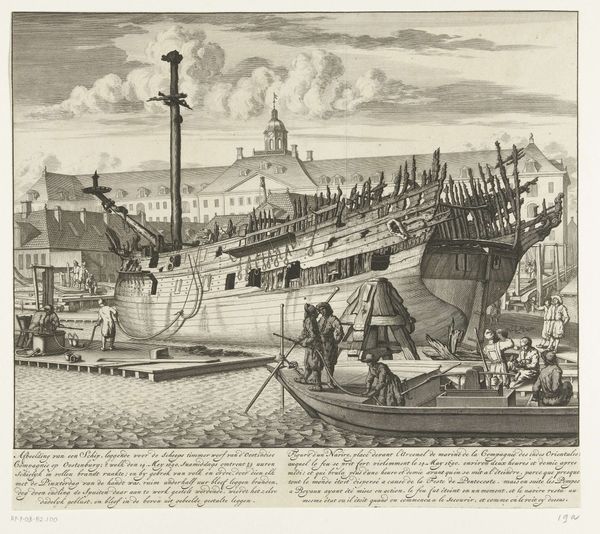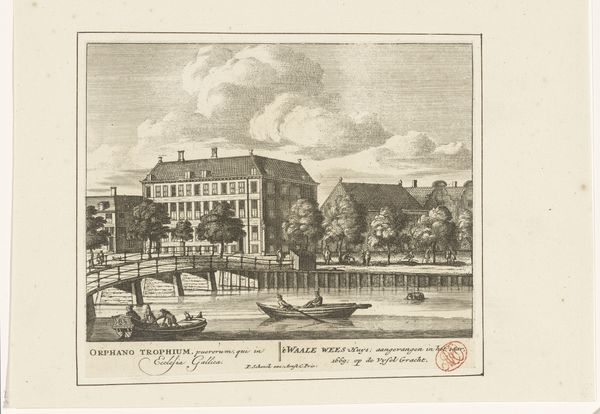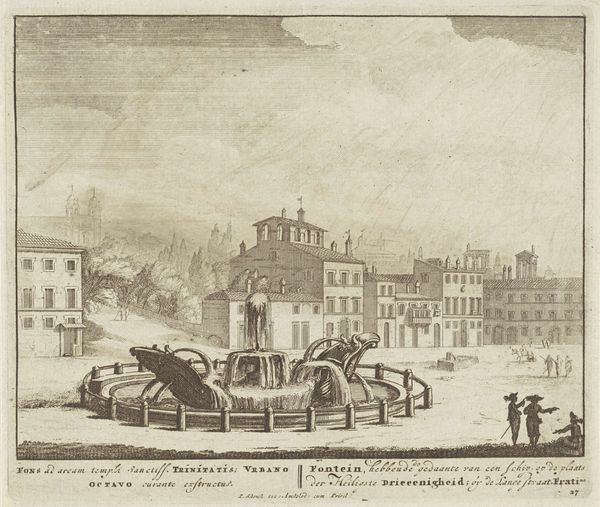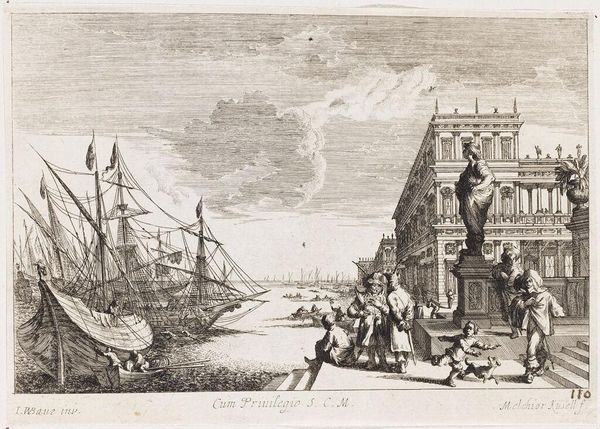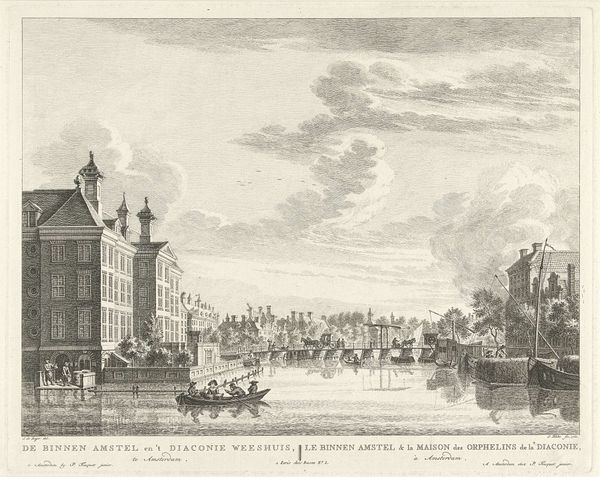
Fontein op Piazza di Santa Maria Maggiore te Rome 1653 - 1691
0:00
0:00
giovannibattistafalda
Rijksmuseum
print, engraving, architecture
#
baroque
# print
#
old engraving style
#
landscape
#
cityscape
#
italian-renaissance
#
engraving
#
architecture
Dimensions: height 220 mm, width 295 mm
Copyright: Rijks Museum: Open Domain
This print of a fountain in the Piazza di Santa Maria Maggiore in Rome was made by Giovanni Battista Falda in the 17th century. The technique used was etching, where lines are incised into a metal plate with acid, then filled with ink and pressed onto paper. The image’s strength lies in its depiction of a public space as a locus of everyday life. It's a reminder that even the most monumental architecture is activated by the people who move through it. The very act of etching, with its reliance on skilled labor, is significant. This was a time when the production of images was becoming increasingly industrialized, yet still relied on the hand of the artisan. Consider the contrast between the hard, precise lines of the architecture and the softer, more fluid rendering of the figures. It reminds us that cities are not just collections of buildings, but living organisms shaped by the people who inhabit them. The print captures a moment in time, preserving the vitality of the city for future generations. This challenges the traditional hierarchy between fine art and the more quotidian practice of printmaking, showing how both can contribute to our understanding of the world around us.
Comments
No comments
Be the first to comment and join the conversation on the ultimate creative platform.
